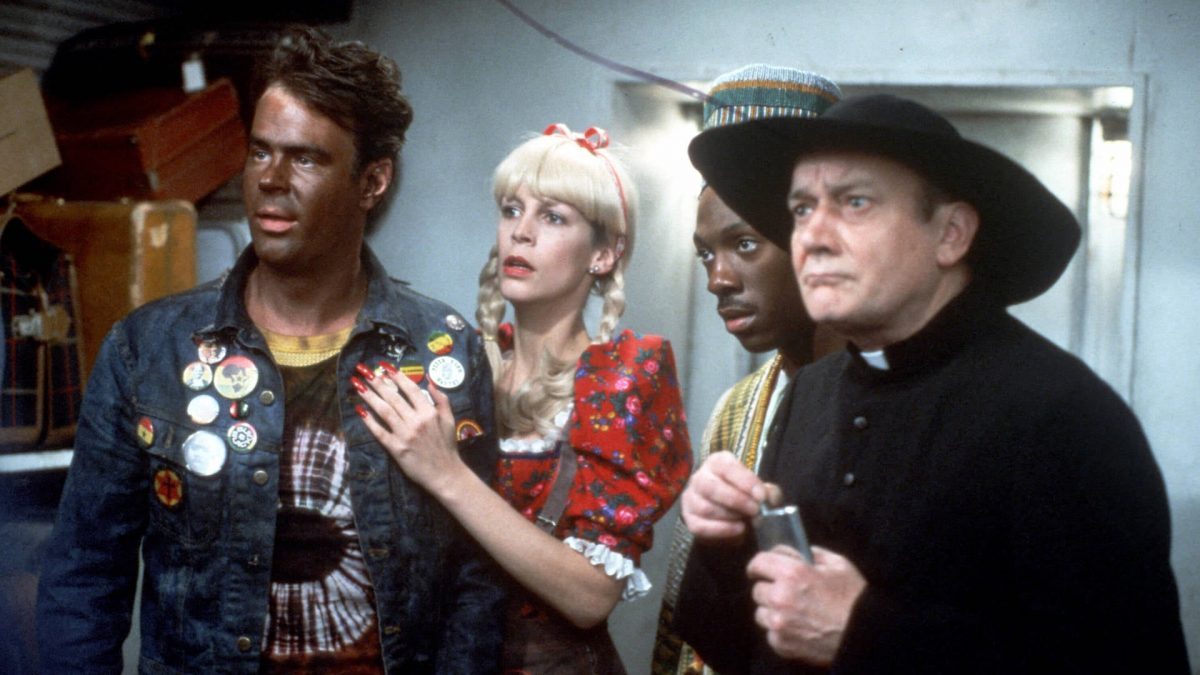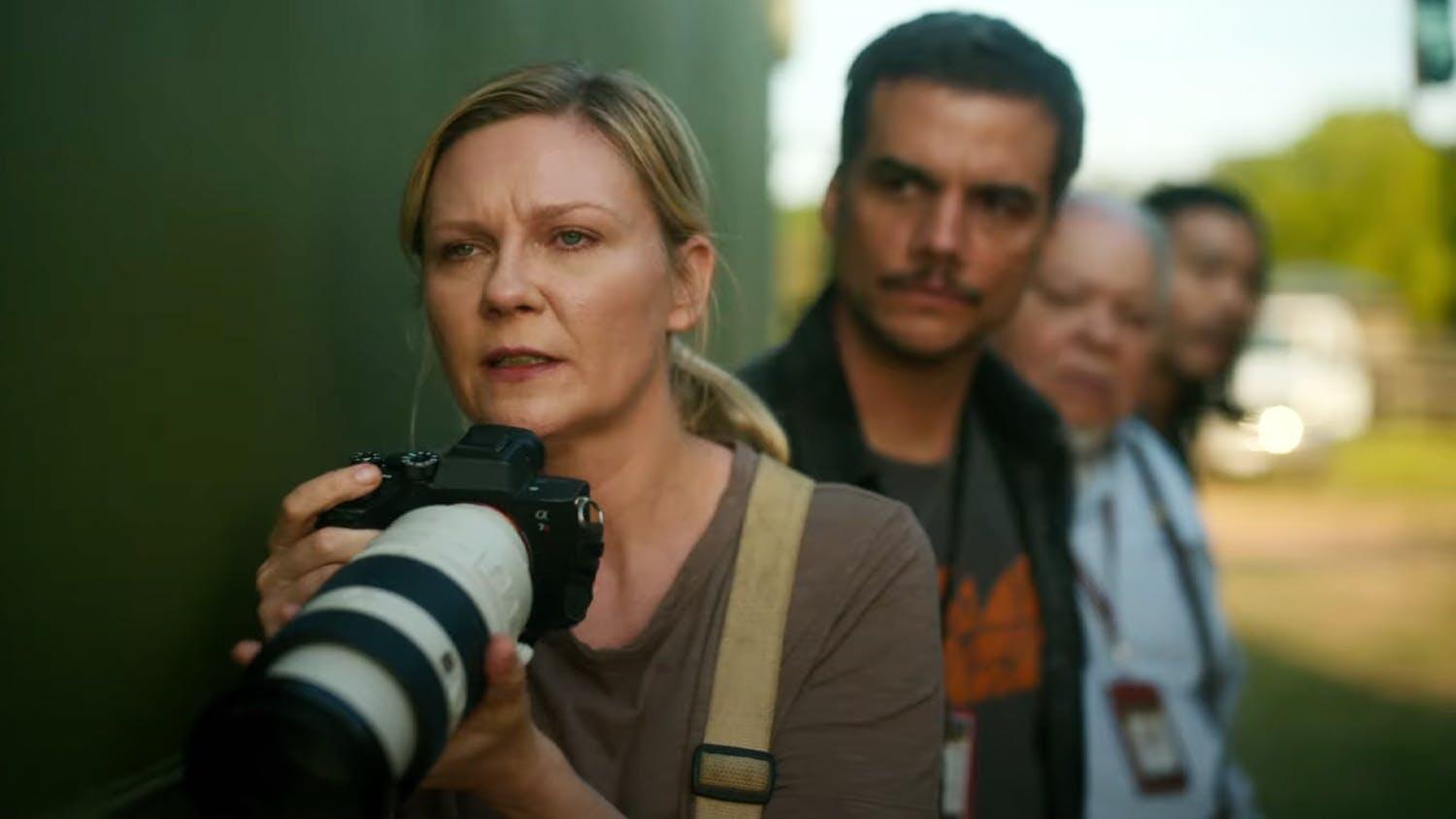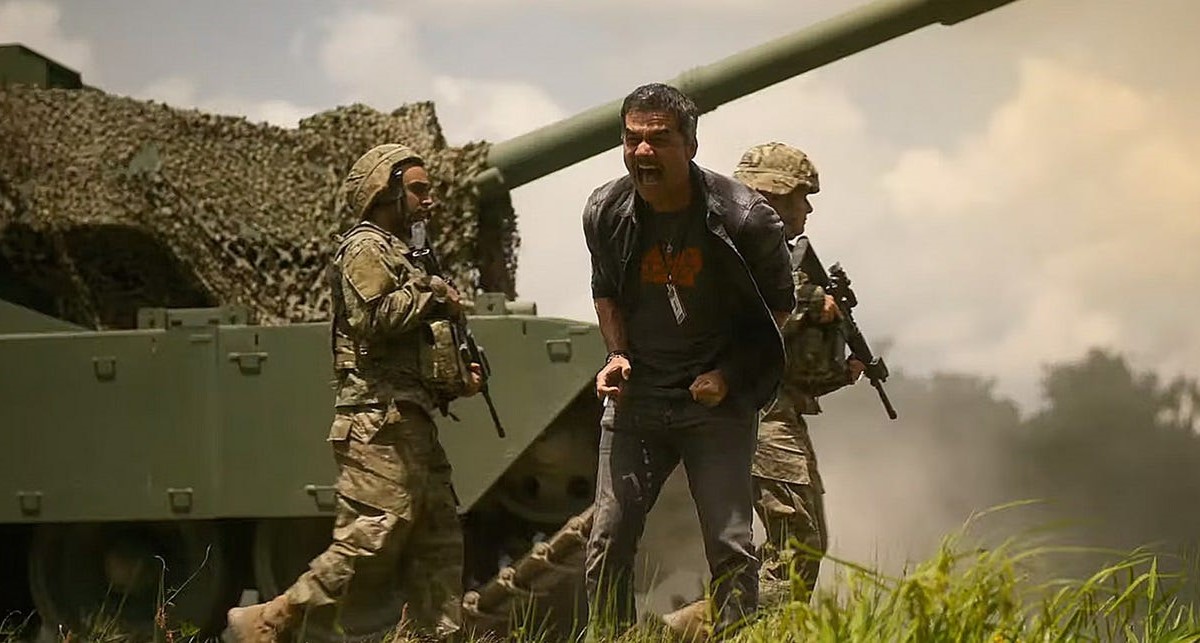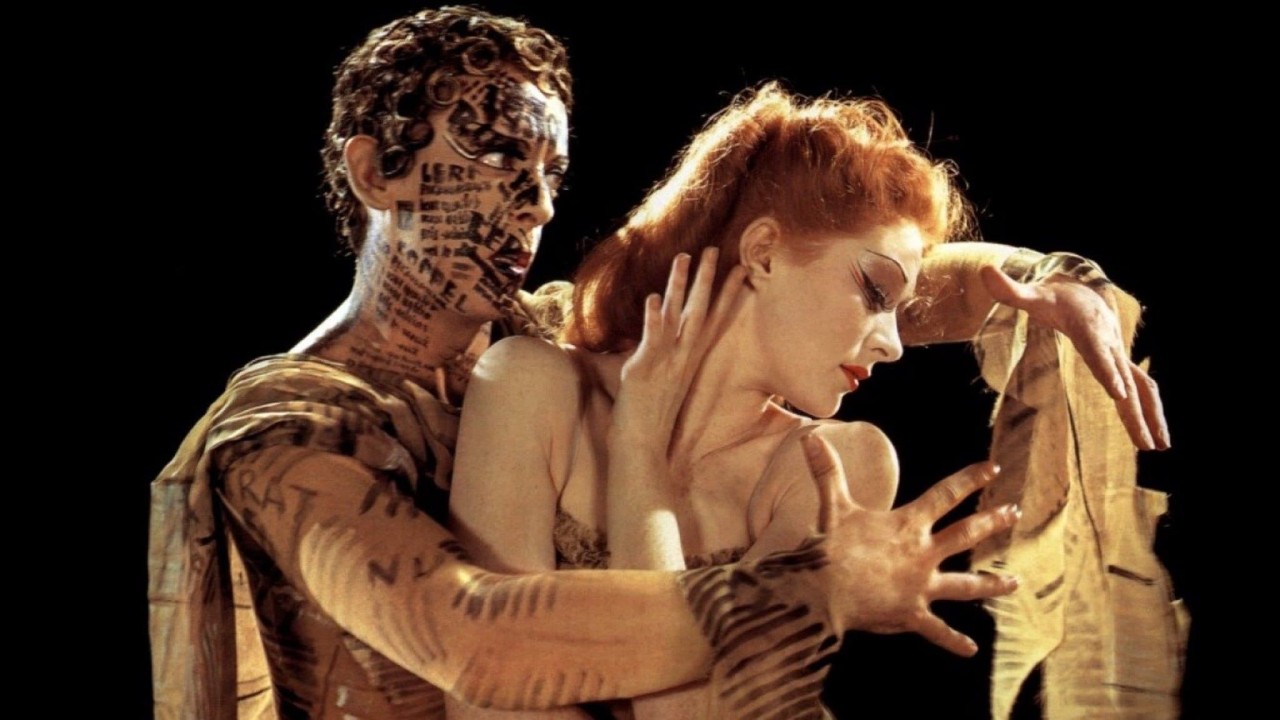Down the Tubes, Up the Ladder
by Richard Schickel
On the winter street outside the Heritage Club, dedicated to liberty and justice for all, but open only to Wasp males of elevated social and financial status. Billy Ray Valentine (Eddie Murphy) is working his latest scam. Black, and a street hustler not quite as shrewd as he thinks he is, Billy Ray is dressed in rags and crouched on a rolling platform. He is pretending to be a blind and legless Viet Nam veteran, begging and trying to make it with a foxy passer-by (“Ain’t you never heard of Porgy and Bess?”).
Inside the club, preppie Louis Winthorpe III (Dan Aykroyd), the sharpest commodity trader going, is reporting to his employers, the brothers Duke. This pair are Dickensian in their meanness and cupidity, but right up to date in their desire to manipulate people for the sheer nasty fun of it. Winthorpe III, it should be noted, is Billy Ray’s soul brother in just one way: he is not as bright as he thinks he is either.
It is sheer chance, a phenomenon not much discussed inside the Heritage Club, that brings the two young men together. A couple of policemen miraculously restore Billy Ray Valentine to health simply by picking him up and shaking him. Running away, he bumps into Winthorpe, whose breeding makes him assume that any encounter with a black is a prelude to mugging. Trying to escape this mad honky, Billy Ray dashes into the club where, under the eyes of the Duke brothers, he is arrested. The old boys have just been discussing nature vs. nurture. Mortimer (Don Ameche) holds that genetics is destiny, that the natural nobility of a chap like Winthorpe will assert itself no matter what his circumstances, and that a fellow like Billy Ray Valentine will resort to criminality no matter how well the world treats him. Brother Randolph (Ralph Bellamy) holds the opposite, that people are shaped by the manner in which the world treats them. Forthwith, a bet is made. The Dukes arrange for Billy Ray to be mysteriously lifted up into Winthorpe’s well-buttled town house, and to apply his street smarts to making money in pork-belly futures. Winthorpe is, at the same time, sent spinning down the tubes, with only a good-hearted prostitute (Jamie Lee Curtis) to guide him through the intricacies of the guttersnipe life-style.
How the two young men discover that they have been had and how they join forces to take revenge are the substance of Trading Places, one of the most emotionally satisfying and morally gratifying comedies of recent times. Perhaps because of an almost geometrically balanced structure, it has powerful persuasiveness when it moves the audience to the wilder shores of farce. Any movie that can punish a villain by involving him in a homosexual love affair with a gorilla and make the situation both plausible and risible is a picture to be reckoned with.
Trading Places also makes Eddie Murphy a force to be reckoned with. It takes nothing away from Aykroyd’s perfect prissiness as Winthorpe, or from Bellamy and Ameche, having the time of their sunset years playing the Dukes, to say this. But Murphy, using his Tyrone Green character from Saturday Night Live as a sketch for a full-scale portrait, demonstrates the powers of invention that signal the arrival of a major comic actor, and possibly a great star. He makes Trading Places something more than a good-hearted comedy. He turns it into an event.
TIME, June 13, 1983





